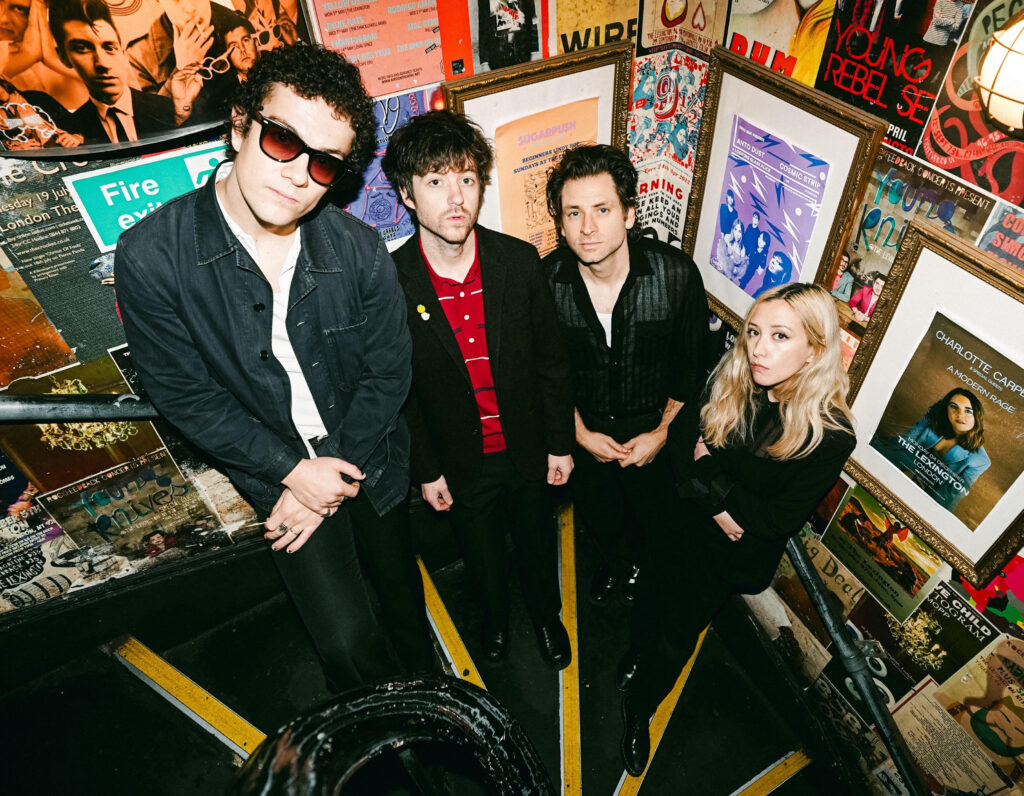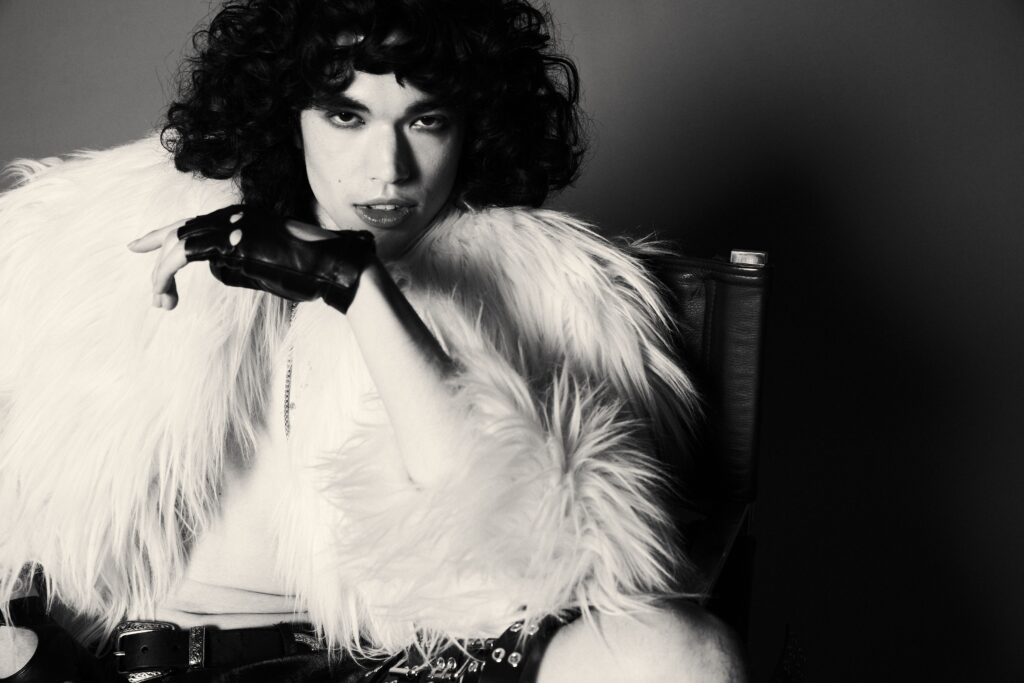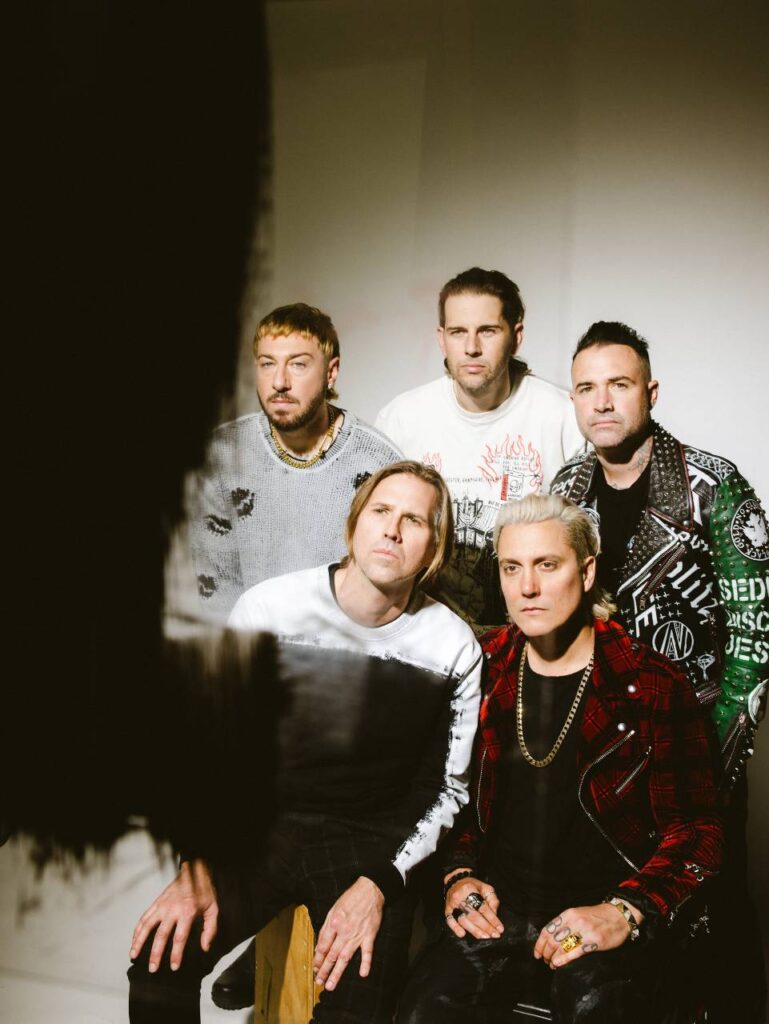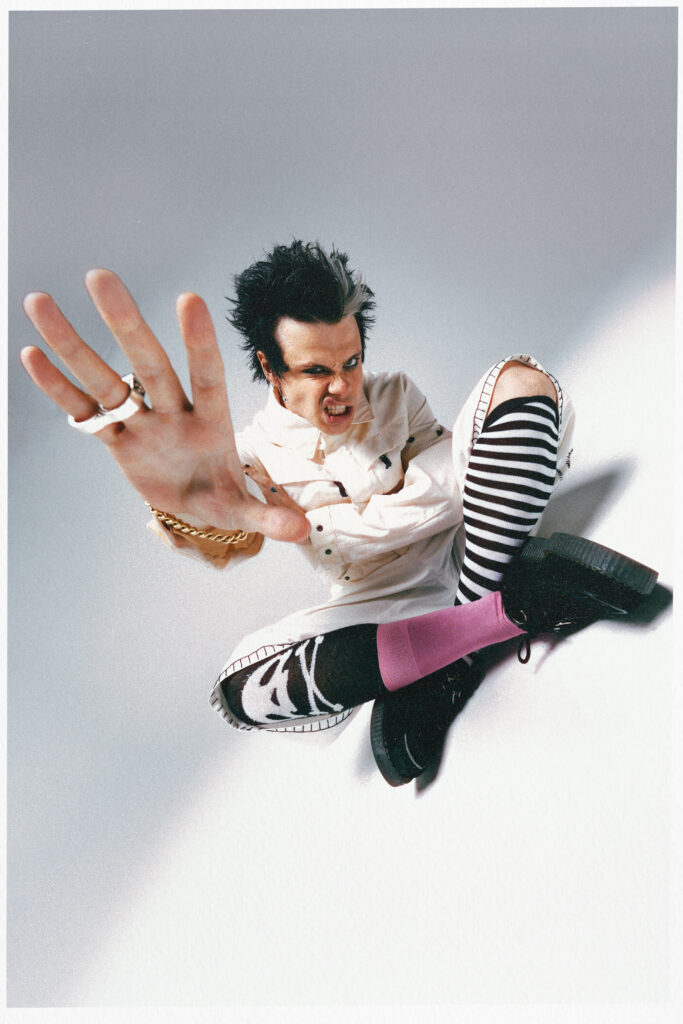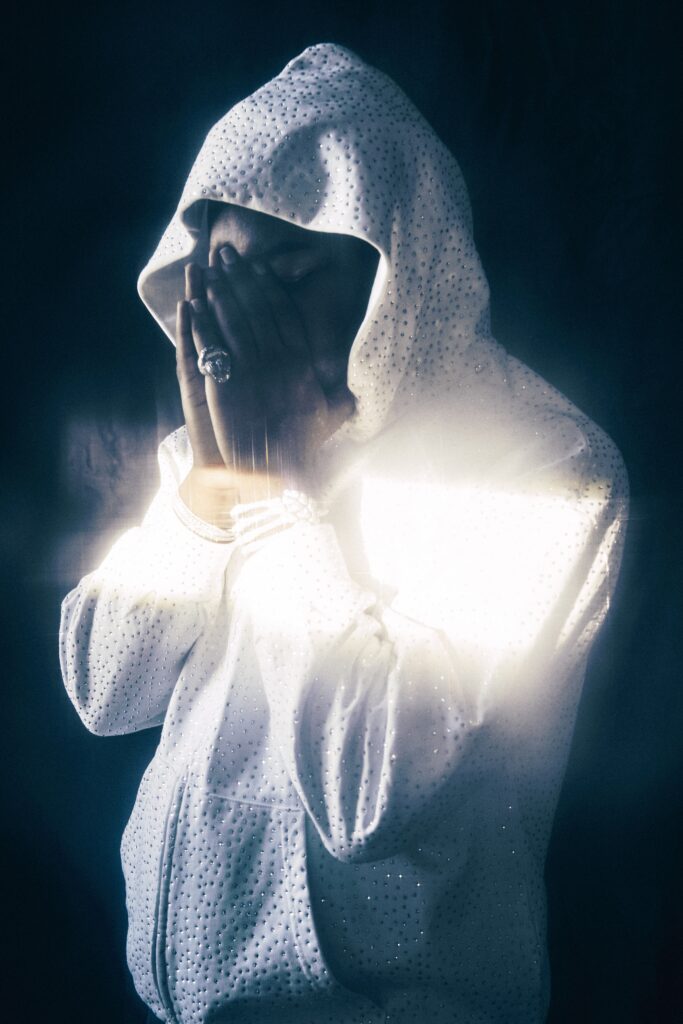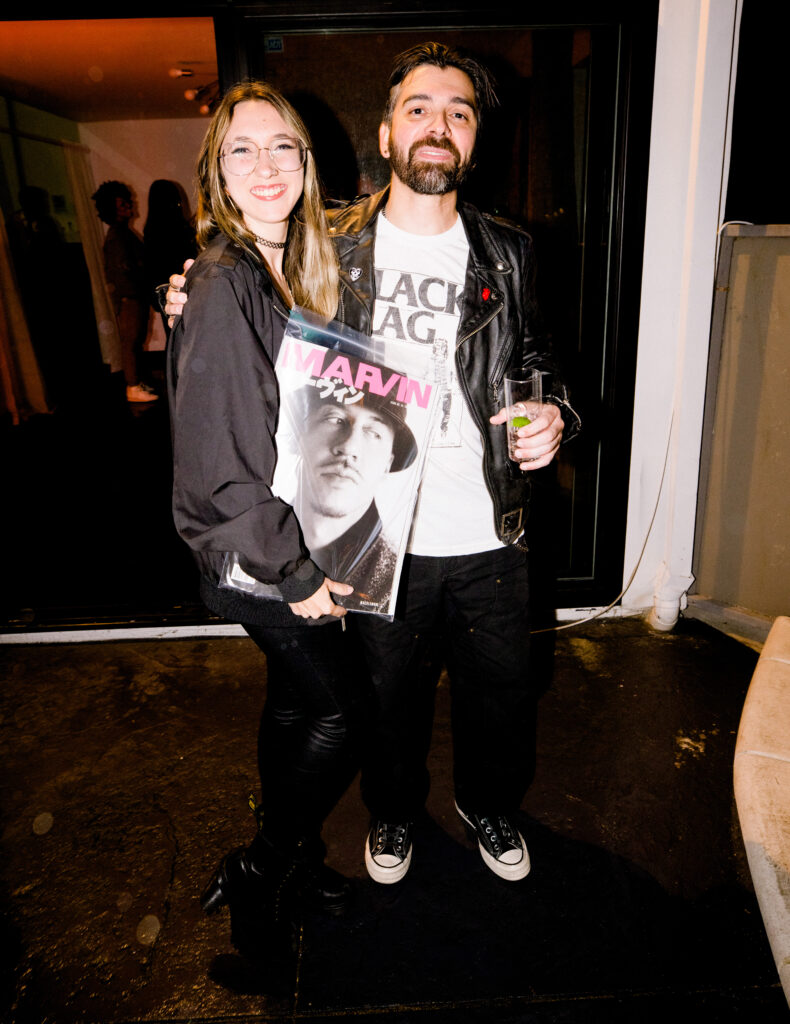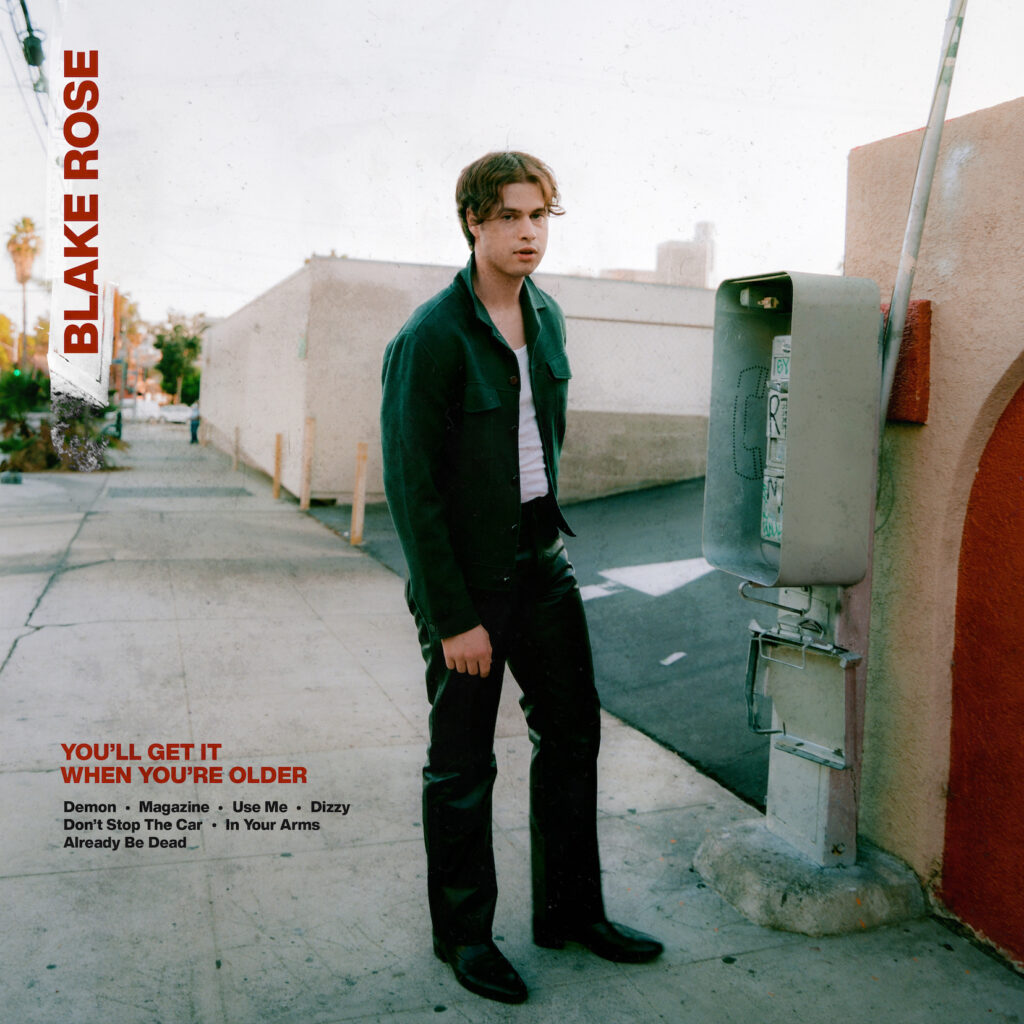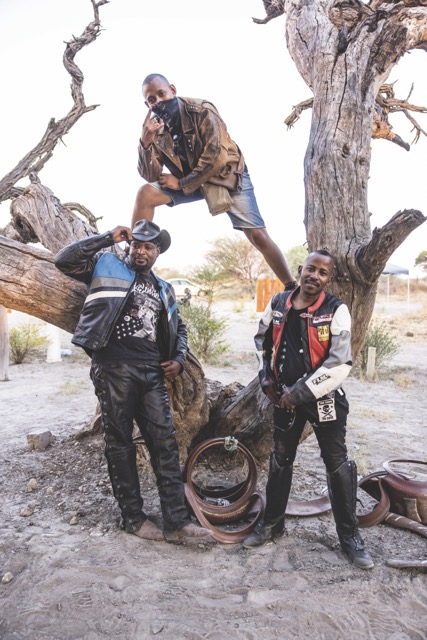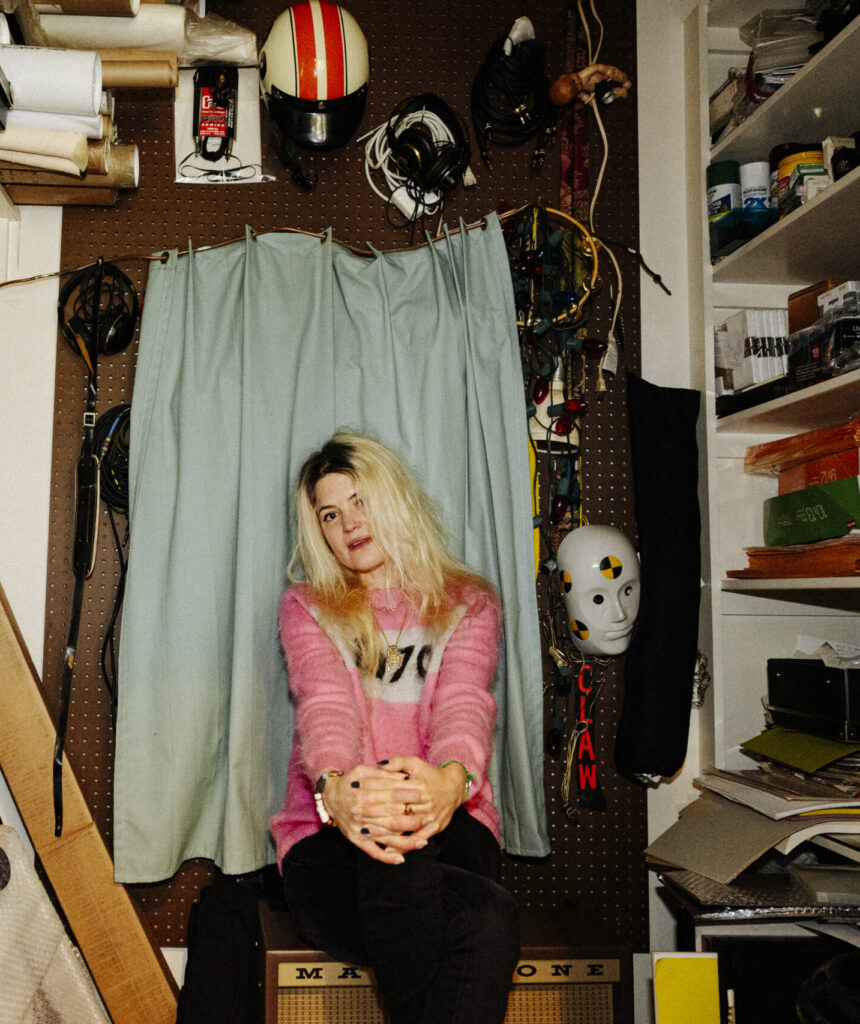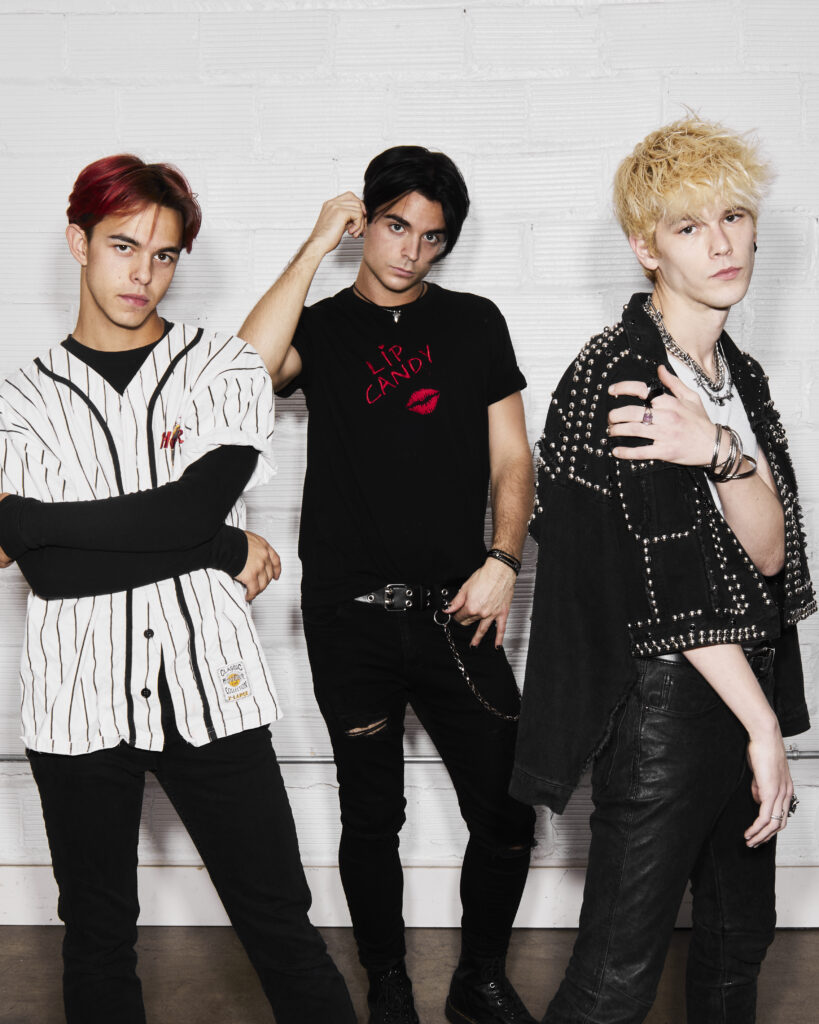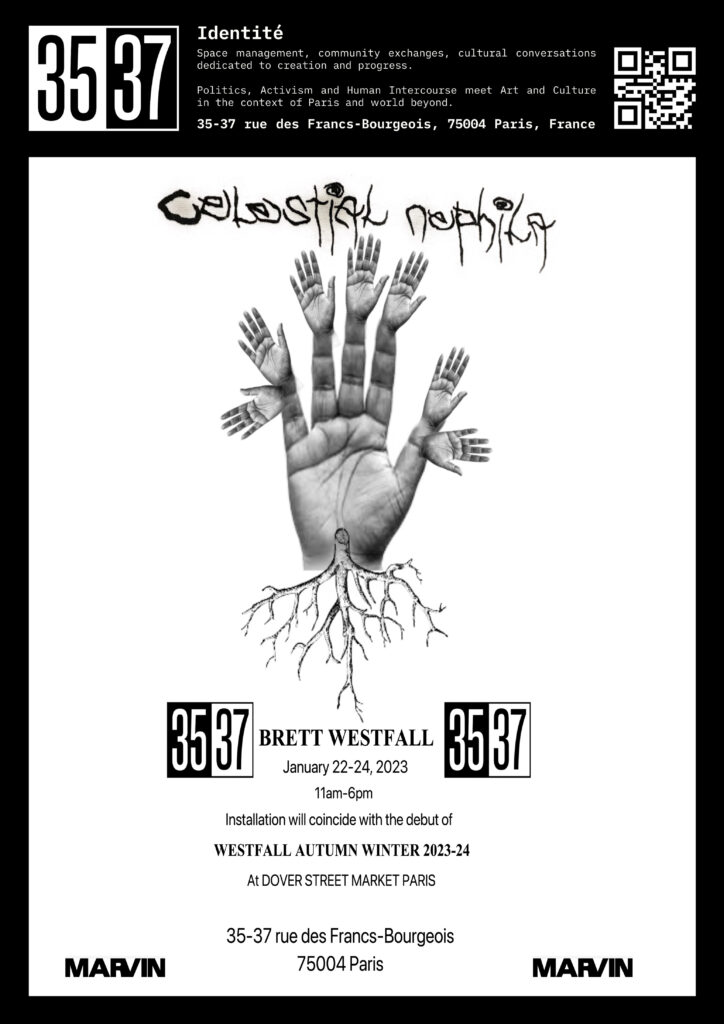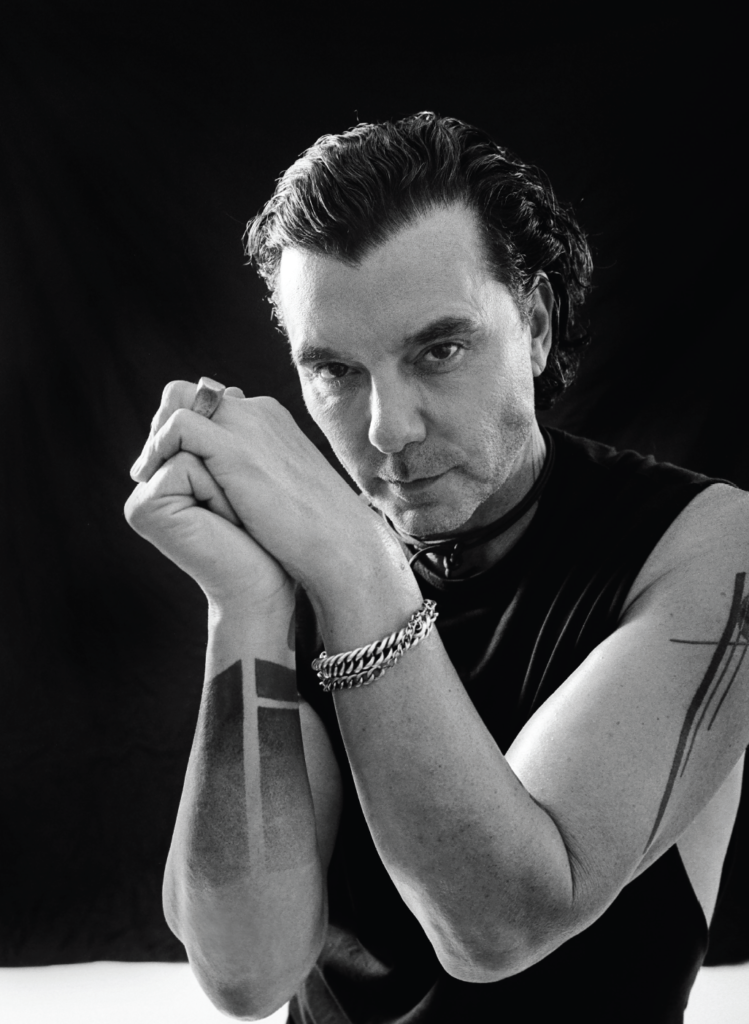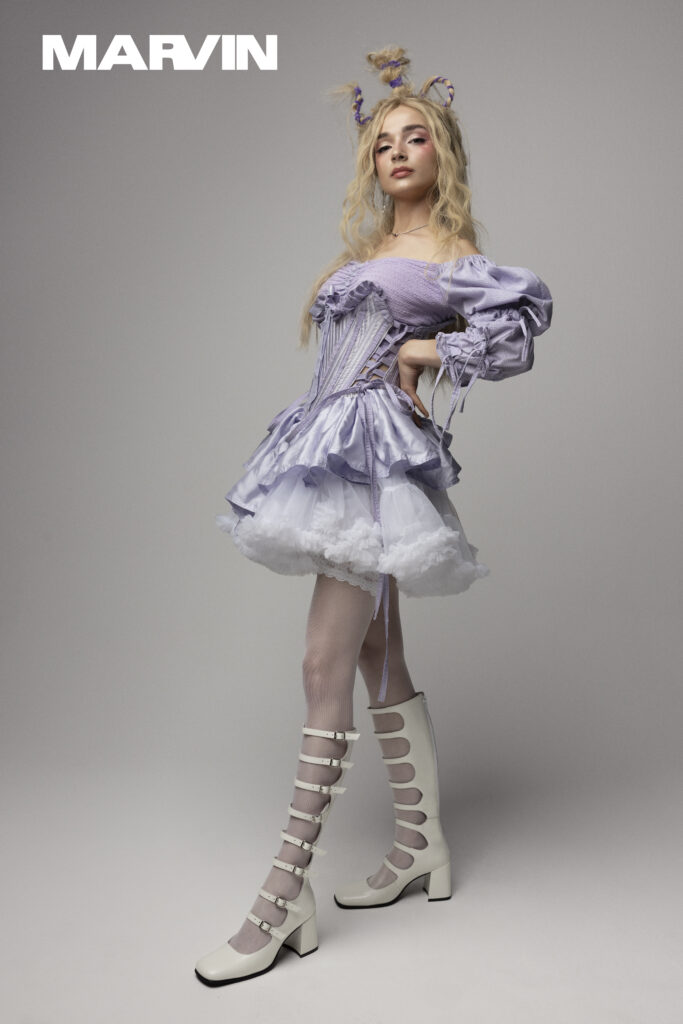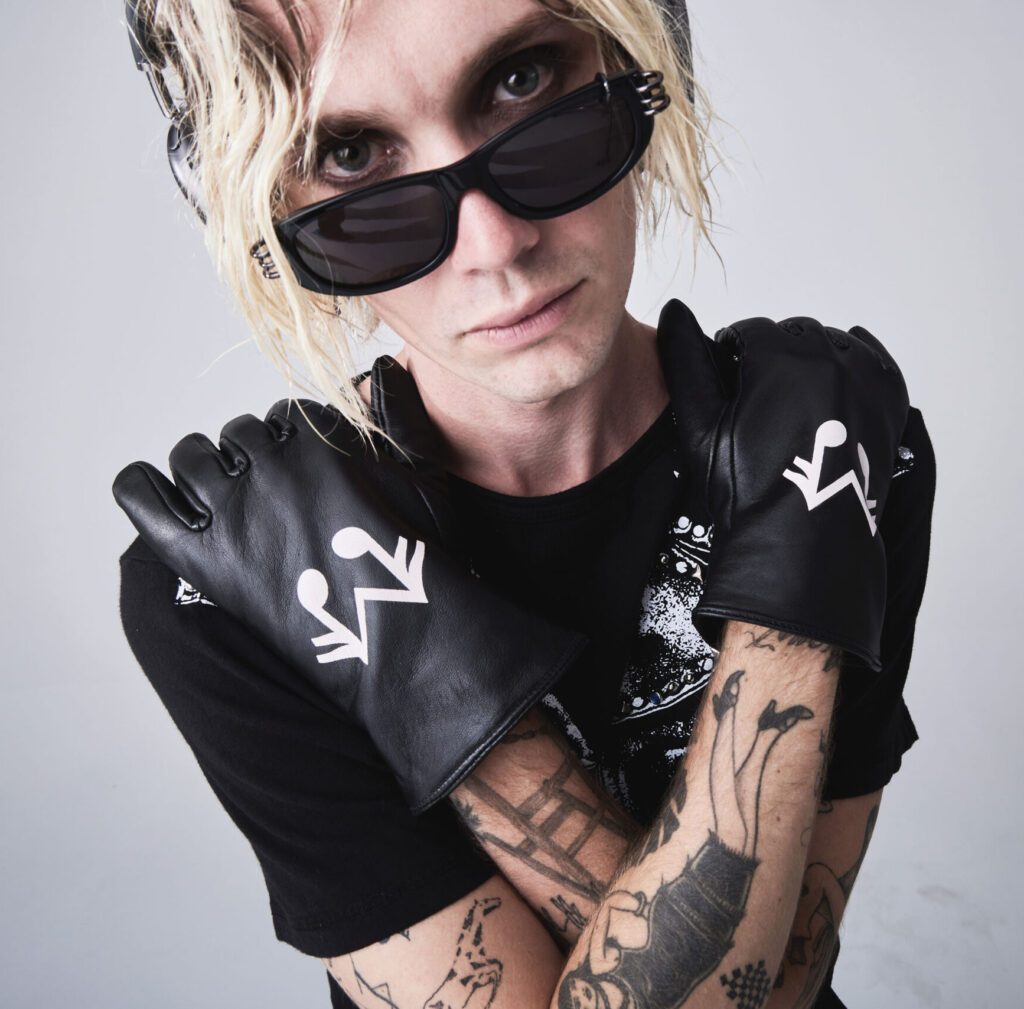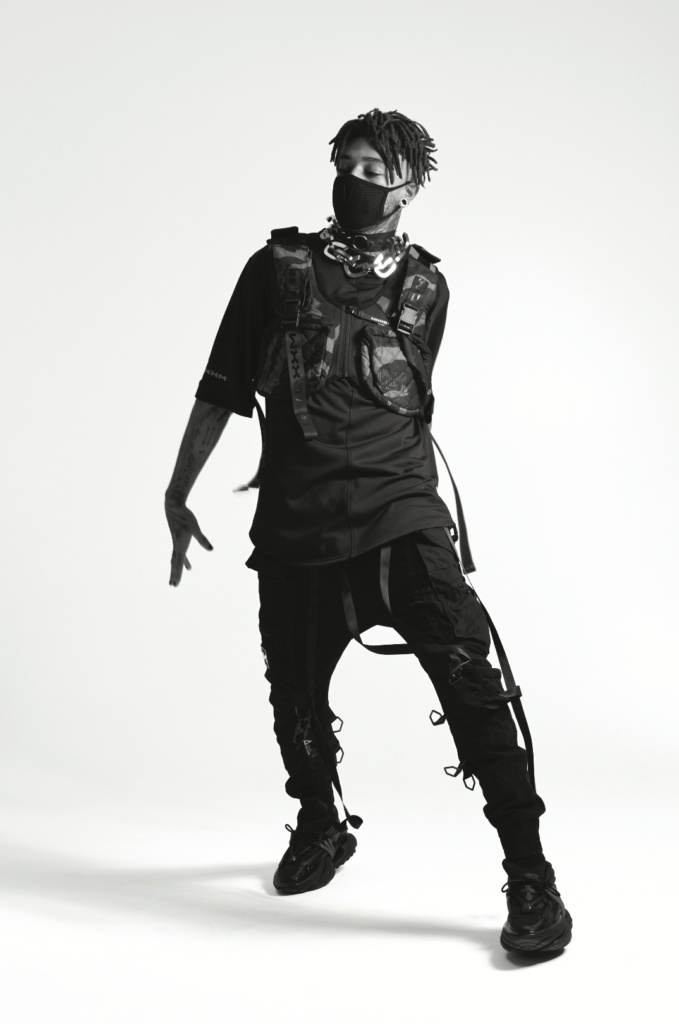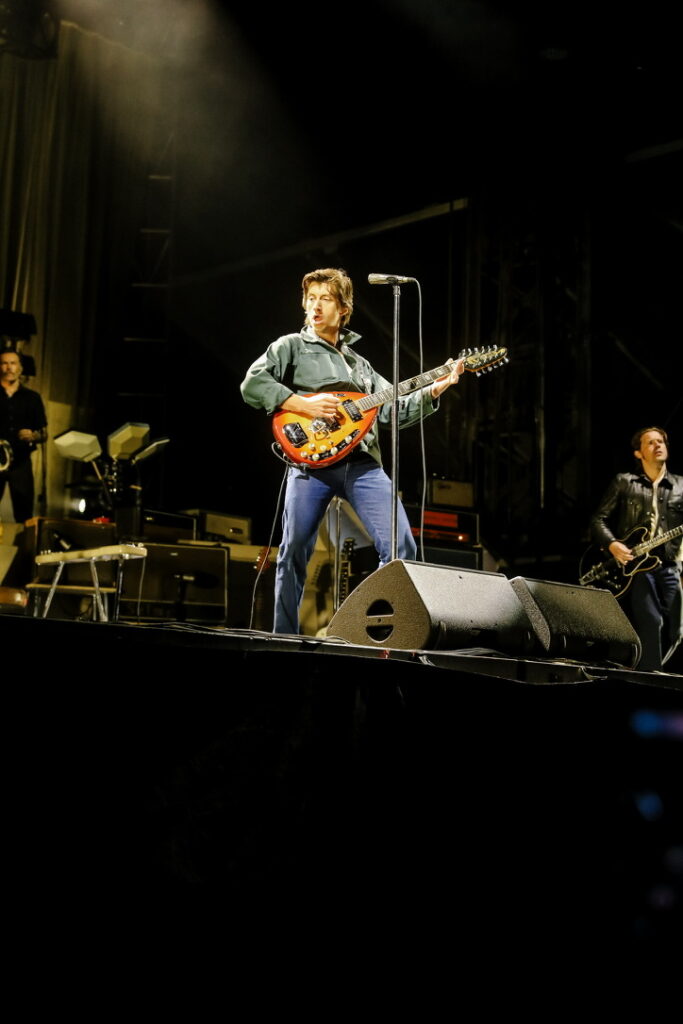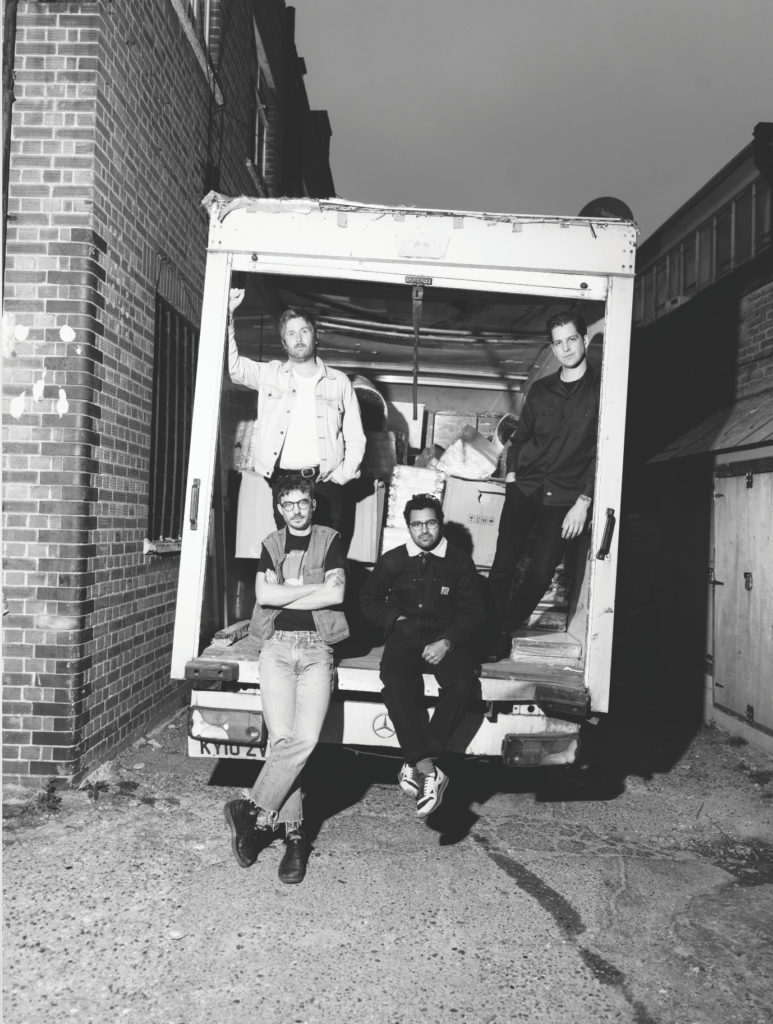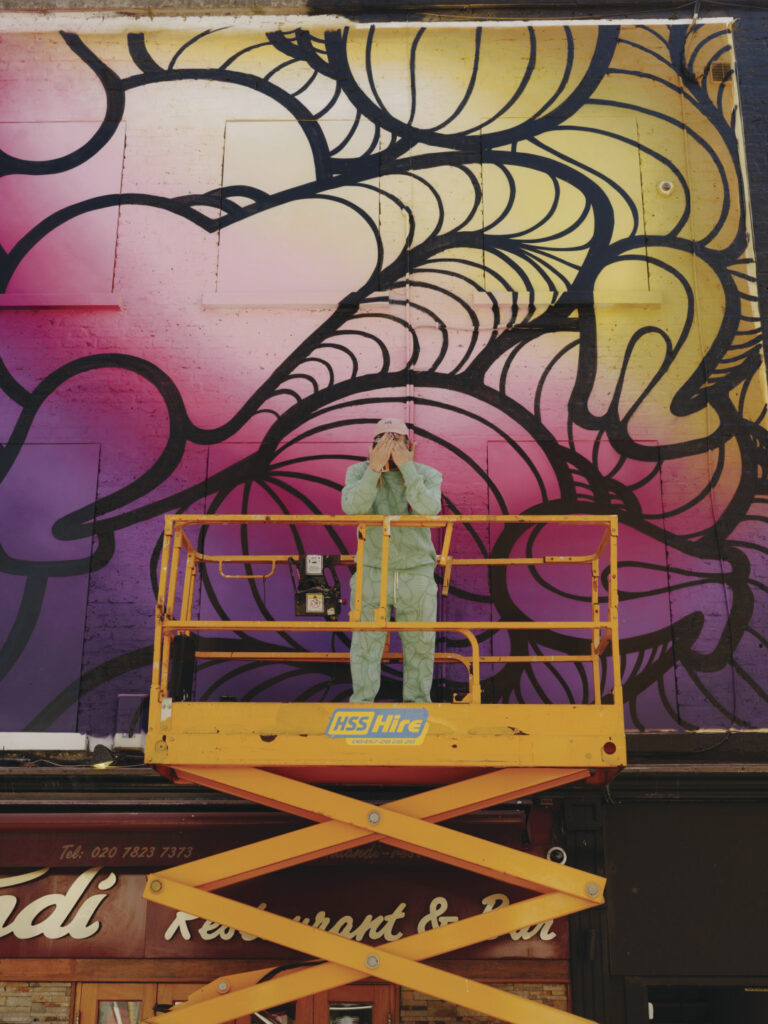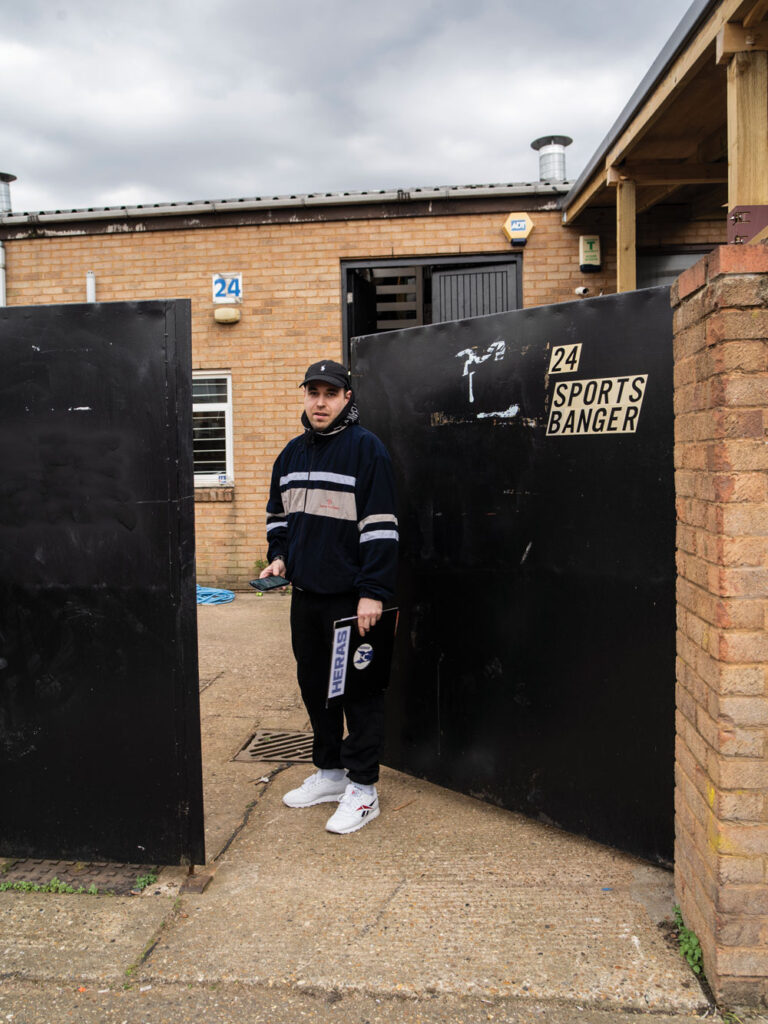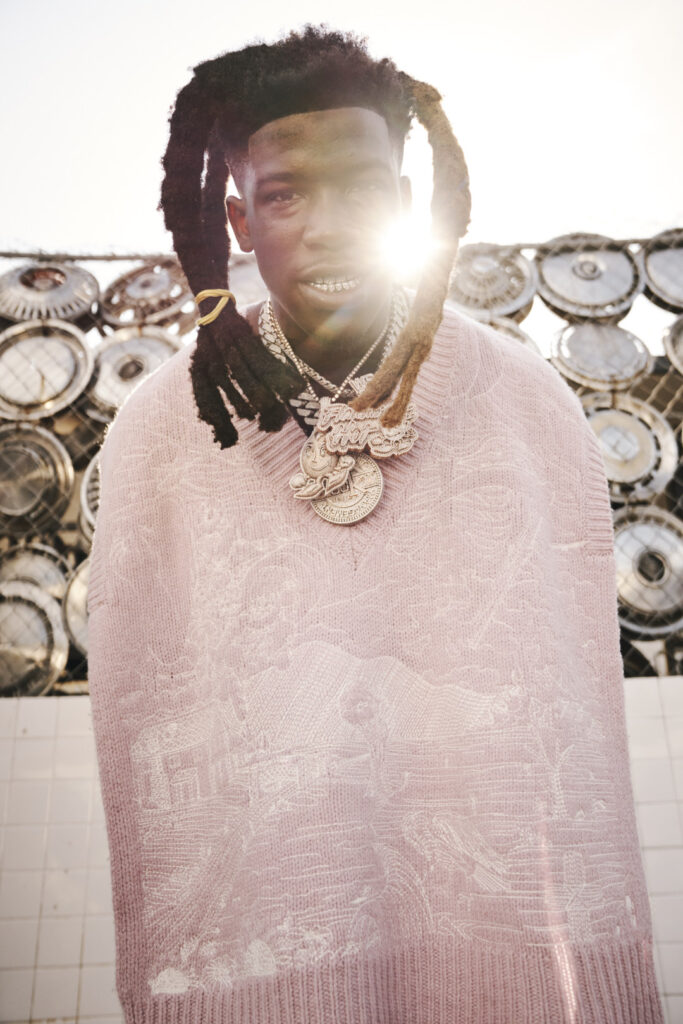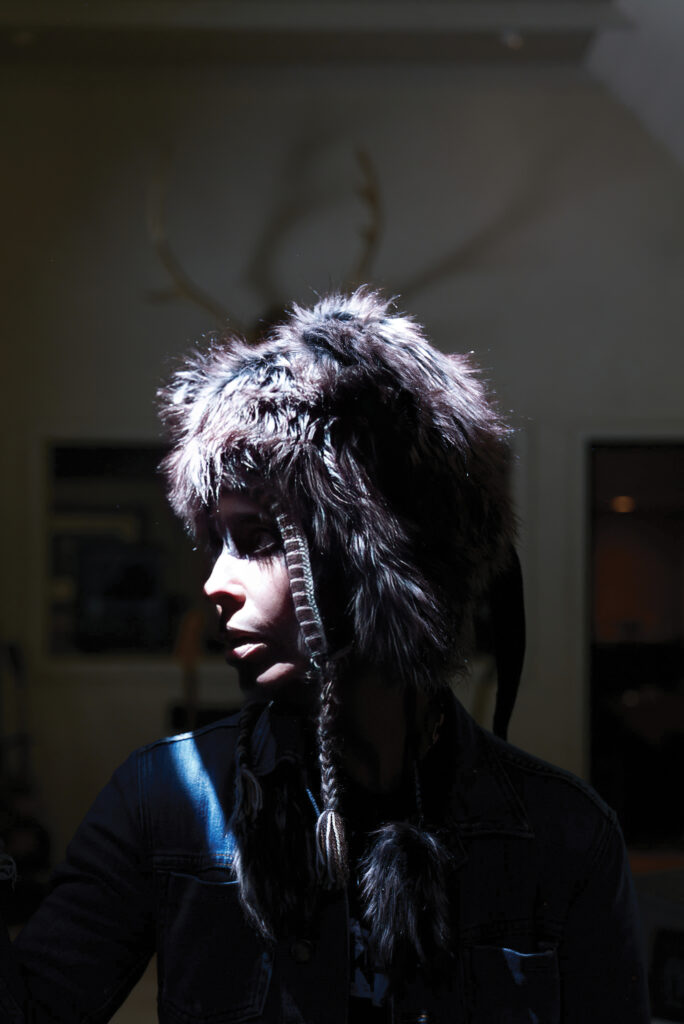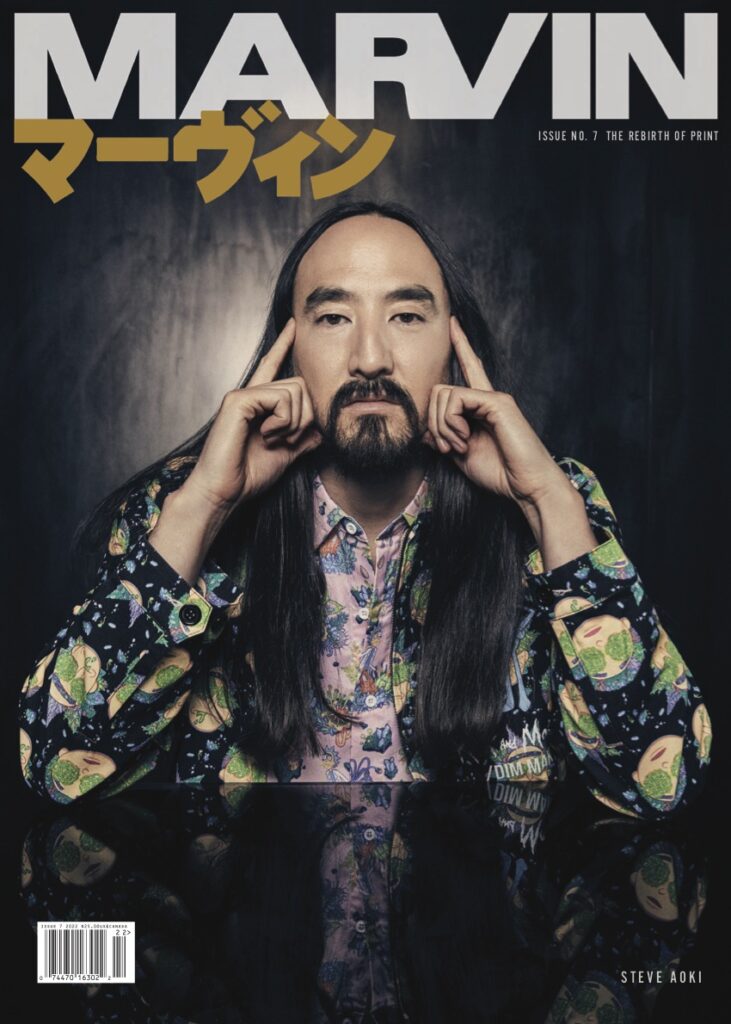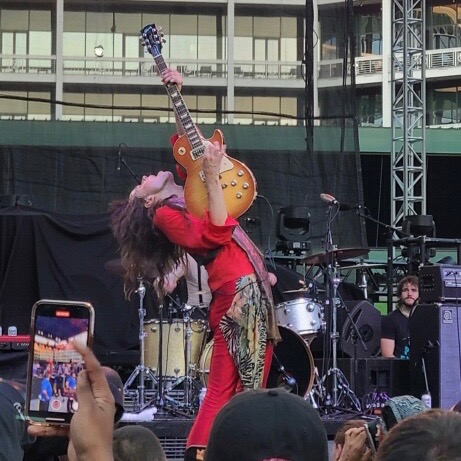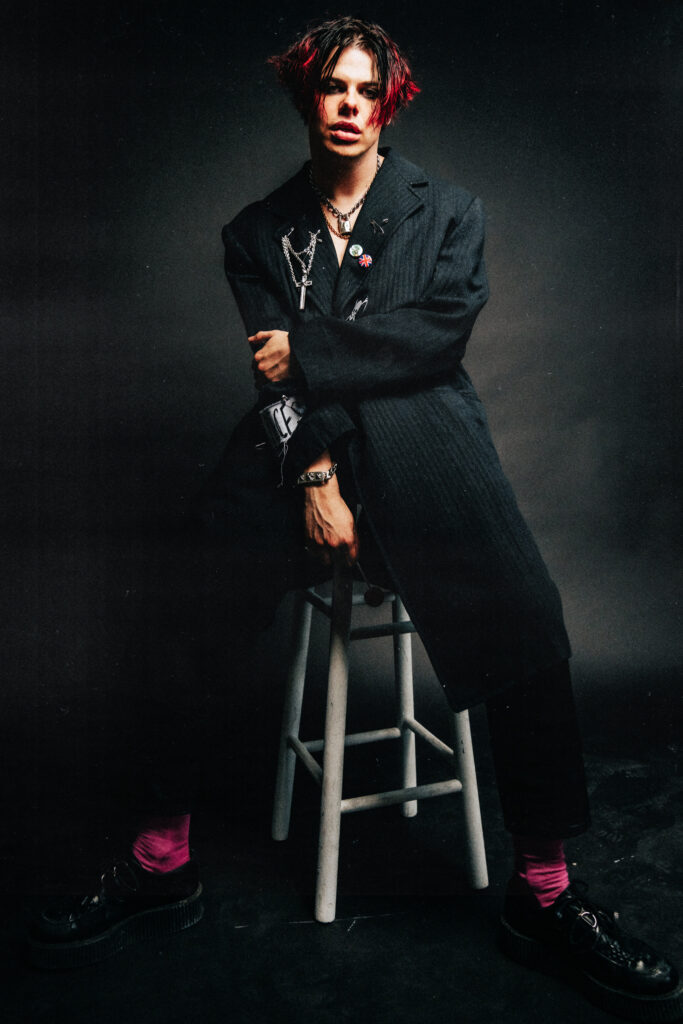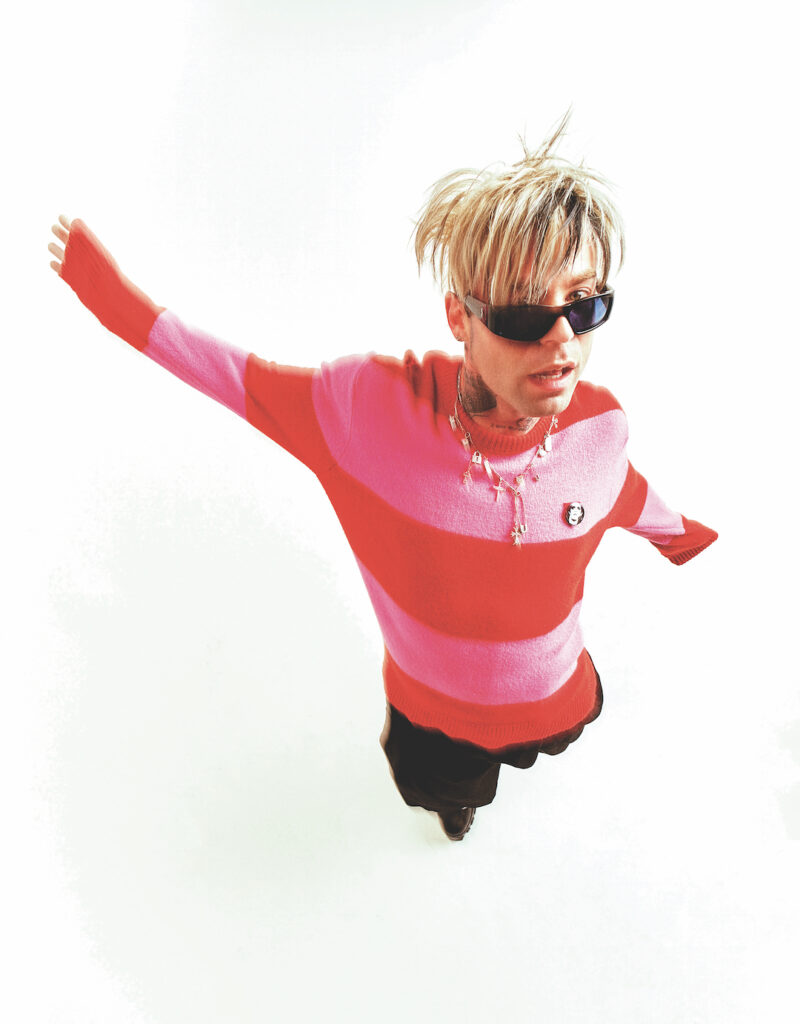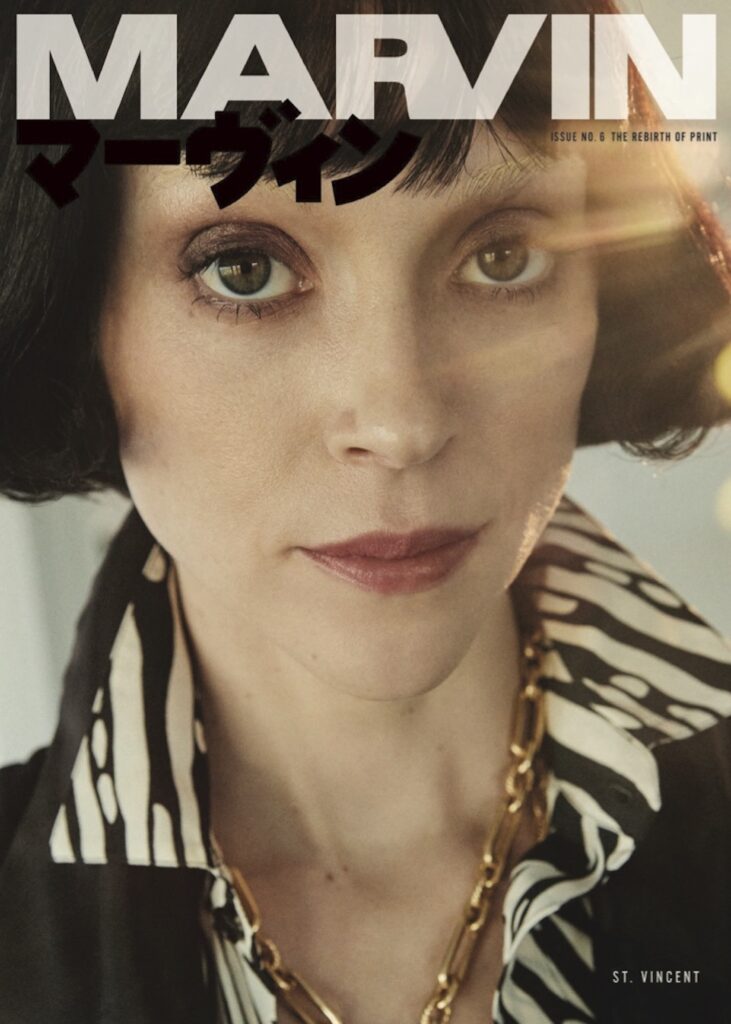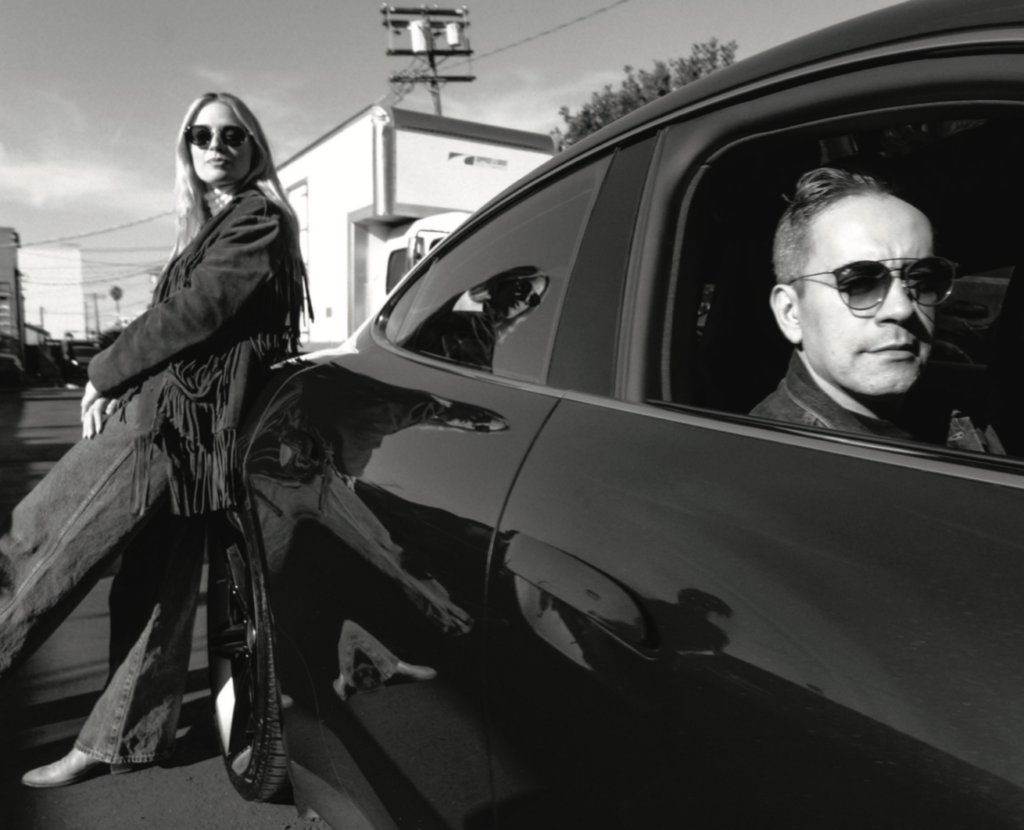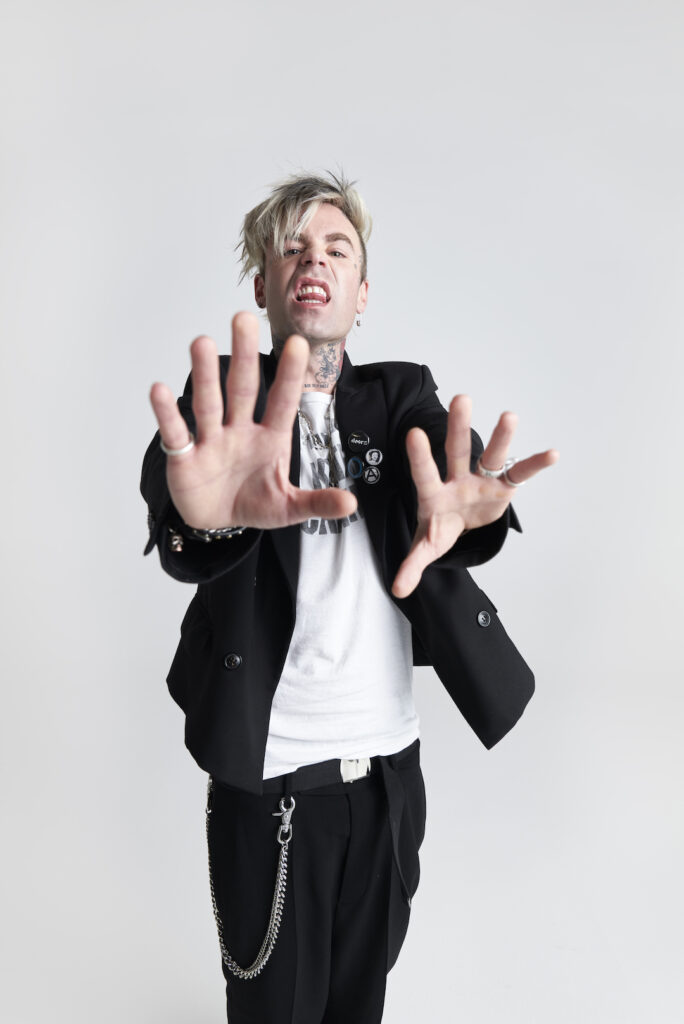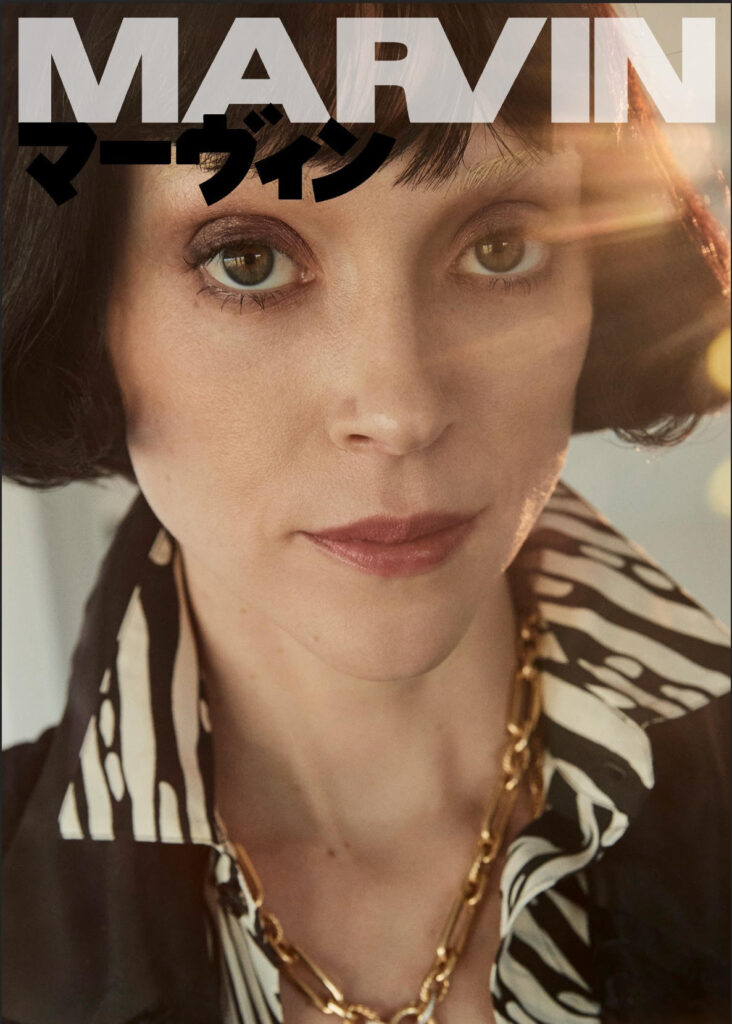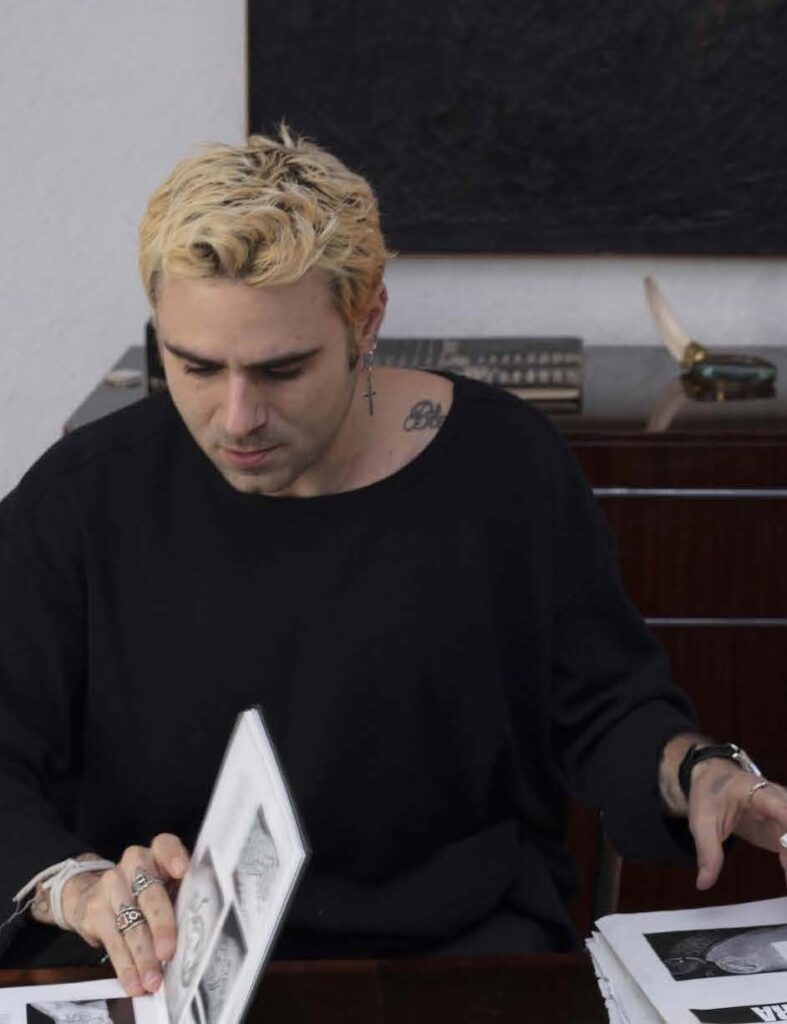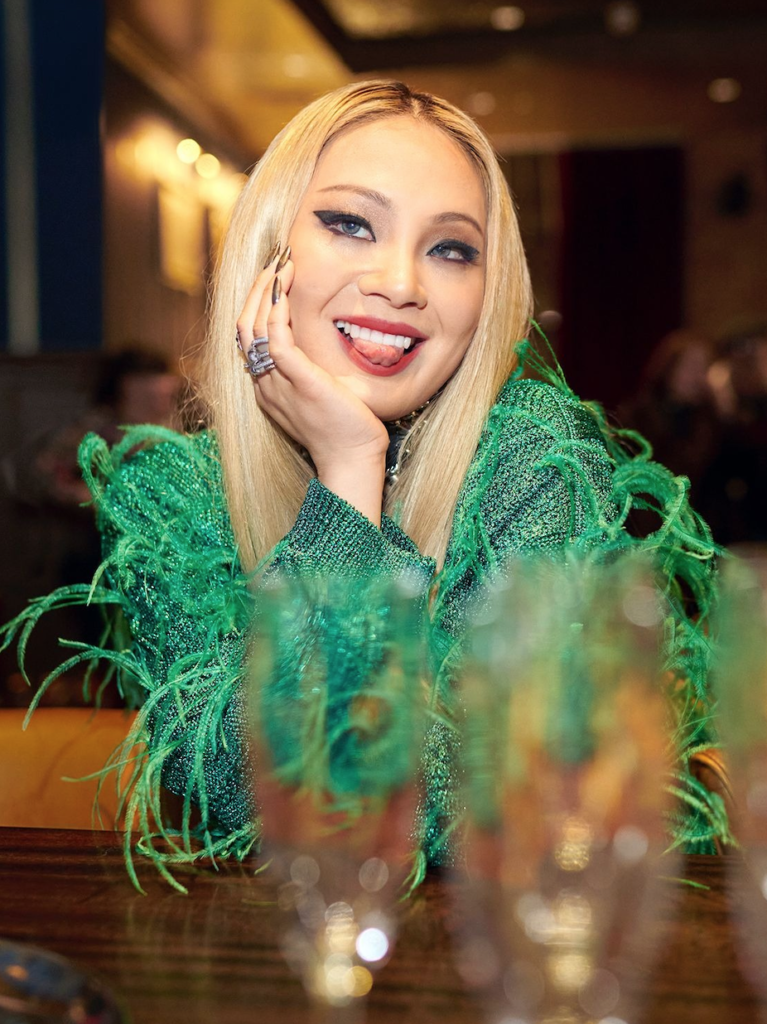Atlanta Duo Mattiel Brown and Jonah Swilley on the Process of Their Upcoming Album ‘Georgia Gothic’
Words by Duncan Cooper
Photography by Brandon McClain
Styling by Matt Lambert
The kudzu photographed on the cover of Mattiel’s new album Georgia Gothic has crawled over everything in sight with one exception: the band. Amid the blanket of green, Atlanta duo Mattiel Brown and Jonah Swilley stand tall in matching red leather suits and red pitchforks. Like the music, which employs a wide range of styles leading back to rock, the image’s wildness is flawlessly composed. OK, there’s one thing. If you look closely, really put your face close to the picture, you can see what looks sort of like congealed red paint dripping off the pitchfork tines and onto the handles.
“I painted the pitchforks and I had to thicken up the spokes with rubber tubing because they were too thin,” says Brown, who used to be a graphic designer before she became a singer/songwriter. “I spent most of my life doing visual work. I thought that was my whole career, and it is still part of my career.” Behind the scenes of Mattiel’s music videos, she’s worn many hats: director, camerawoman, editor, and even more in-the-weeds stuff like makeup and food stylist. The point Brown was making about the band that shares her name, though, was not that she does everything. On the contrary: “Jonah has spent his life really mastering what his favorite thing to do is,” she goes on. “He’s spent his whole life perfecting how to make a record.”
Georgia Gothic is Mattiel’s third full-length album, due to be released in spring of 2022, and in some ways it’s Brown and Swilley’s first together. The project began seven years ago, after Brown reached out to Randy Michael, then Swilley’s partner in a production team called InCrowd, about recording her first song. Everybody got along and Swilley and Michael wrote the music for the first two Mattiel albums. It’s hard to pin down the sound exactly, a kind of finely crafted garage band-y soul. But was Mattiel a band? In music videos and photographs, the guys came across more like producers, very much in the background, if seen at all. Michael didn’t work on this album however. Mattiel is now the two of them, a dynamic that made for closer collaboration and welcome evolution in their style.
“The first night I ever met Mattiel,” Swilley remembers, “we wrote ‘Send It On Over’ from the first album. We were writing partners before we were friends.” They chalked up some big wins early on: an in-store performance at the Third Man Records shop in Nashville led to opening for Jack White in 2018; they did well overseas, touring Europe repeatedly and playing Glastonbury. “We didn’t have a lot of time to really get to know each other before we were forced to do a lot of work on the road,” says Brown. “It wasn’t the friendliest environment for cultivating a close relationship.” Last year, when the pandemic slowed things down, the pair decided to try something new: get in a room together and jam out a record.
They headed to Helen, Georgia, an outdoorsy vacation spot at the foot of the Blue Ridge Mountains where a kitschy town center is fashioned after a Bavarian Alpine village. They spent a week in a house—with pictures of moose and bear on the walls—and set about writing and demo-ing their new album from scratch. “All of our previous music had been written over a long period of time,” Swilley explains. “This was our effort to hunker down and spend time with as much music creation as we could.” It was a focused getaway; adds Brown, “I don’t know if we didn’t have wifi but I definitely don’t remember using it.”
One of the implicit aims of Georgia Gothic is to get away a little bit from the retro elements that have traditionally defined Mattiel in the press. Practically every early review mentions The Velvet Underground and The White Stripes. One unflattering writeup of 2019’s album Satis Factory likened them to Quentin Tarantino, “someone who borrows pretty much everything… hopefully achieving some critical and commercial success by accident or osmosis.”
“We’re both really open-minded and aware of the possibility that we could be pigeonholed,” Brown acknowledges. “I really love those first two records, but I wanted to break away from that. Jonah’s musical knowledge allows for that.”
Still, it doesn’t sound like there was much discussion about the record’s direction, much less anything resembling a designer’s mood board. They just got themselves in the room. “It was a lot of telepathy,” Brown recalls. “Jonah would play me something, and it’d my job to open up my head and my receptors to whatever came in.” Earlier in the interview, both mention feeling like outsiders growing up in Georgia, and a few songs tell those stories about struggling to find one’s place. Biblical allusions recur throughout: “It’s rained for 40 days and nights,” Brown sings on “Lighthouse.” When they refer to God, it seems sarcastic, as on “You Can Have It All”: What’s a fair share? / Eat up / You’ll never have an empty cup / God has shed his grace on us.
Even a little angsty, it’s worth pointing out that Brown’s muscular singing voice, which has often been treated with a punky sort of distortion, sounds far more natural on this record than ever before. There’s a more stripped-down delivery sure, but moreover it’s just a general feeling of ease. She never seems like she’s shouting to compete with the sharpest guitar or drum breaks or horns. The album is clearly a conversation between peers who, after the ups and downs of making music professionally for years, know right where the other stands. “Honestly, I’ve taken a break from trying to produce new acts,” Swilley says at one point. “I don’t really want to work on things that I don’t really love and now I’m just ready to take this as far as we can take it and be as much of a bandmate as I can.”
Sometimes, when you interview artists in the middle of their careers, you get the sense they’re not concerned with impressing anyone. Maybe because they’re weary to the idea of performance when it isn’t happening on a stage. That’s what it’s like talking to Mattiel, polite and professional but they also probably would’ve rather kept to themselves. They didn’t delve into personal backgrounds or express much beyond pride in their songs. A central vibe for this album was that it was wholly defined by their own instincts. “No one made it easy for us to make this album,” Swilley admits. “No one was asking us to make this record. But we really wanted to do it.”
After their time in Helen, Brown and Swilley went home to record the studio version. A friend had converted a former dialysis center in a dying strip mall into an art studio, and he let the band use a room before the building was slated for demolition.
“We wrote this magical thing in this tiny room,” Brown remembers, “and now it doesn’t even exist.” It’s a modern Georgia gothic tale. The kudzu crawling all over the American South is an apt metaphor for the speculative suburban sprawl that’s here today, gone tomorrow. Maybe it’s alright Mattiel prefer to stick to talking about the music—the past doesn’t matter as much as what you choose to make of it.
@mattielworldwide


